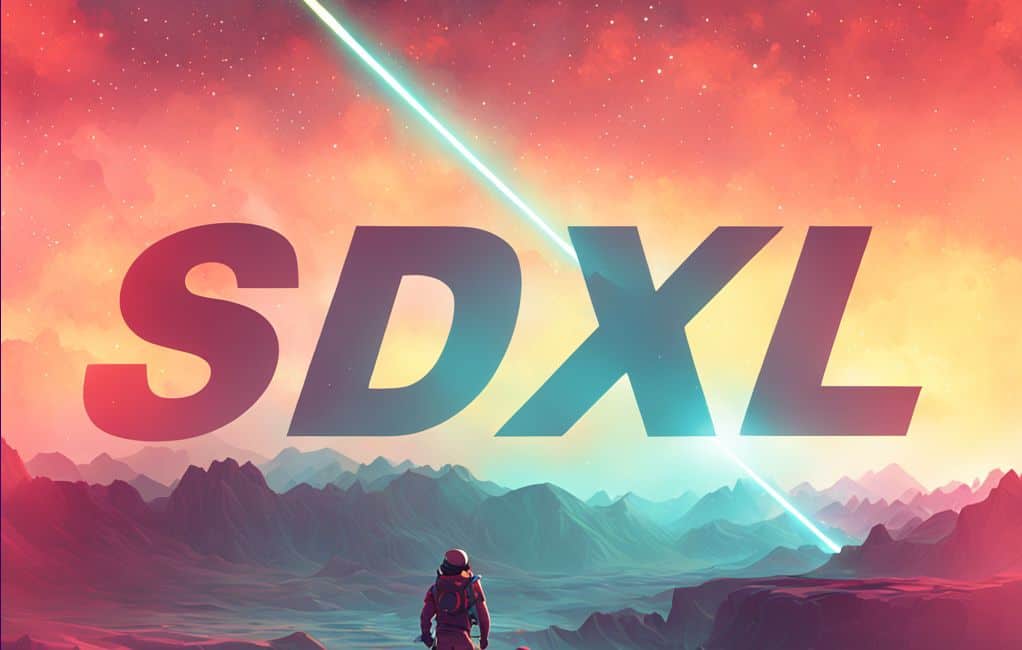Stability AI Launches Stable Diffusion XL 1.0 to Quickly Produce 1-Megapixel Images


In Brief
Stability AI has released its latest product, SDXL 1.0, a text-to-image generation tool with improved image quality and a user-friendly interface.
With 3.5 billion parameters, it can produce 1-megapixel images in different aspect ratios.
The model is designed to streamline the text-to-image generation process and includes fine-tuning features, such as ControlNet, derived from Stanford University research.
SDXL 1.0 is optimized for consumer GPUs with an 8GB VRAM capacity and is equally efficient on reasonably priced cloud instances.
The software offers enhanced fine-tuning, allowing for the generation of Custom LoRA or checkpoints with reduced data overhead.
The AI community can expect updates in the near future, and SDXL 1.0 can generate advanced concepts, such as intricate details or complex spatial compositions.
The tool is open-source accessible on GitHub, promoting transparency and collaboration within the community.
Stable Diffusion XL 1.0 (SDXL 1.0), the newest product from Stability AI, has been finally released. This tool, which is positioned as the most recent development in text-to-image generation, stands out for its improved image quality and user-friendly interface.

While many in the AI industry keep improving their platforms, Stability AI’s recent release of SDXL 1.0 shows a promising advancement. The model’s impressive 3.5 billion parameters enable it to quickly produce 1-megapixel images in different aspect ratios. Joe Penna, the director of applied machine learning at Stability AI, emphasized the model’s capabilities in a conversation with TechCrunch. He emphasized how it can be customized and how you can adjust image concepts and styles by using basic natural language processing cues. With the help of these features, users’ tasks can be made easier while still following clear instructions to create complex designs.
Stability AI appears to have addressed challenges prevalent in the AI sector, particularly concerning text generation. Notably, many cutting-edge text-to-image models often fall short when tasked with generating legible text, especially in intricate styles like calligraphy. However, SDXL 1.0 has showcased proficiency in advanced text generation.
What differentiates SDXL 1.0 further is its competitive positioning against other major contenders such as Midjourney and Adobe’s Firefly service. The new model underlines improved image refining processes, resulting in richer colors, superior lighting, and enhanced contrast. Additionally, the inclusion of a fine-tuning feature facilitates the generation of tailor-made images.
SDXL 1.0’s development leveraged a streamlined training approach, benefiting from its large parameter base, positioning it as an ideal foundation for various tools and capabilities. Elaborating on its attributes, Emad Mostaque, CEO of Stability AI, stated that SDXL 1.0 was meticulously crafted to streamline the text-to-image generation process. This has been further enriched with ControlNet, derived from Stanford University research, facilitating enhanced fine-tuning and composition capabilities.
A noteworthy feature of the SDXL 1.0 model is its user-centric design. Contrary to requiring lengthy prompts to yield desirable results, the model allows users to issue complex multi-part directives, succinctly capturing the intent with fewer words than earlier models. As of now, this innovative model is accessible through multiple platforms, including Amazon Bedrock and Amazon SageMaker Jumpstart services.
Enhanced Performance on Consumer GPUs and Advanced Fine-Tuning Features

Designed with compatibility in mind, SDXL 1.0 is optimized for consumer GPUs with an 8GB VRAM capacity and is equally efficient on reasonably priced cloud instances.
Features and Compatibility:
The launch of SDXL 1.0 demonstrates Stability’s commitment to ensuring efficient and accessible AI solutions for users. One of the key takeaways from the announcement is the software’s ability to operate seamlessly on standard consumer GPUs. For users, this means the potential for optimal performance without the need for high-end or specialized hardware.
Enhancements in Fine-Tuning:
Stability has incorporated features in SDXL 1.0 that simplify the process of model retraining for unique datasets. The current model permits the generation of Custom LoRA or checkpoints with diminished data overhead, which paves the way for more efficient and faster model adaptations to specific needs. Furthermore, there’s a hint towards the future as the Stability AI team is in the midst of developing advanced controls for task-specific structures, styles, and compositions. Specifically, T2I/ControlNet, which is specialized for SDXL, is on the horizon. While these advancements remain in the pre-beta phase, the AI community and users can anticipate updates in the near future.
Rendering Advanced Concepts:
SDXL 1.0 showcases its capability to generate concepts that were previously challenging for image models. This includes rendering intricate details like hands and text, or even more complex spatial compositions, such as scenes depicting a woman in the background pursuing a dog in the foreground. This feature is particularly significant as it indicates a leap in the software’s ability to interpret and render nuanced and multifaceted scenarios.
Open Source Accessibility:
For developers and enthusiasts interested in delving deeper, Stability has made the weights and code for SDXL 1.0 available on GitHub. This move not only promotes transparency but also encourages collaborative development and innovation within the community.
Try It Out:
For those eager to test the capabilities of SDXL 1.0, Stability has integrated it into platforms like DreamStudio and ClipDrop. Additionally, interactive sessions and potential demonstrations are available through Discord, allowing users to experience the tool’s features firsthand.
Read more about AI:
Disclaimer
In line with the Trust Project guidelines, please note that the information provided on this page is not intended to be and should not be interpreted as legal, tax, investment, financial, or any other form of advice. It is important to only invest what you can afford to lose and to seek independent financial advice if you have any doubts. For further information, we suggest referring to the terms and conditions as well as the help and support pages provided by the issuer or advertiser. MetaversePost is committed to accurate, unbiased reporting, but market conditions are subject to change without notice.
About The Author
Damir is the team leader, product manager, and editor at Metaverse Post, covering topics such as AI/ML, AGI, LLMs, Metaverse, and Web3-related fields. His articles attract a massive audience of over a million users every month. He appears to be an expert with 10 years of experience in SEO and digital marketing. Damir has been mentioned in Mashable, Wired, Cointelegraph, The New Yorker, Inside.com, Entrepreneur, BeInCrypto, and other publications. He travels between the UAE, Turkey, Russia, and the CIS as a digital nomad. Damir earned a bachelor's degree in physics, which he believes has given him the critical thinking skills needed to be successful in the ever-changing landscape of the internet.
More articles

Damir is the team leader, product manager, and editor at Metaverse Post, covering topics such as AI/ML, AGI, LLMs, Metaverse, and Web3-related fields. His articles attract a massive audience of over a million users every month. He appears to be an expert with 10 years of experience in SEO and digital marketing. Damir has been mentioned in Mashable, Wired, Cointelegraph, The New Yorker, Inside.com, Entrepreneur, BeInCrypto, and other publications. He travels between the UAE, Turkey, Russia, and the CIS as a digital nomad. Damir earned a bachelor's degree in physics, which he believes has given him the critical thinking skills needed to be successful in the ever-changing landscape of the internet.






















































